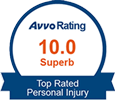Central Illinois Since 1895
Uber / Lyft Accidents
While Uber and Lyft are immensely popular throughout Illinois including the Chicagoland area, in a college town such as Champaign-Urbana and surrounding areas such as Bloomington-Normal and even Springfield Illinois, rideshare services such as Uber and Lyft are even more widely used. We all remember college, and Uber and Lyft are firmly established as a primary mode of transportation. It is important for patrons of rideshare programs to understand that there is Illinois Law covering these operations. The Illinois Rideshare Laws cover insurance minimums, liability, and in some cases monetary recovery for injuries from car accidents and negligence. Additionally, simply because an individual decides to work for a ride share program, it does not logically follow that the driver has the experience to avoid auto accidents and other forms of negligence on the road they can cause serious personal injury. Just ask taxi drivers who actually need to go through some sort of training. Koester Law, PLLC, through our Illinois auto accident team has been at the front line in helping individuals injured in accidents caused by Uber and Lyft drivers throughout Champaign County and throughout Central Illinois.
An Overview of Uber, Lyft, and Ride Sharing Accidents in Illinois
The purpose of rideshare was to provide consumers with a reasonably priced commuting alternative to public transportation or taxicabs. Uber, a Transportation Network Company, was formed in 2009 and Lyft soon followed in 2012. However, with new transportation services come new problems, particularly how insurers would cover accident claims. On June 1, 2015, the Illinois State Legislature signed into law, the Transportation Network Providers Act (625 ILCS 57) which outlines insurance requirements and driver requirements. The statute defines “Transportation Network Company” (TNC) as an entity operating in this State that uses a digital network or software application service to connect passengers to transportation network company services provided by transportation network company drivers. This entity is not a taxicab association, a for-hire vehicle owner and does not own, operate, control or manage the vehicles used by the drivers.
How Do I Recovery for Uber and Lyft Injuries? First Look to Insurance
625 ILCS 57/10 states that a TNC driver must comply with the automobile liability insurance requirements from the moment the TNC driver logs on to the TNC’s digital network or software application until the TNC driver accepts a request to transport a passenger, and from the moment the TNC driver completes the transaction on the digital network or software application or the ride is complete, whichever is later; until the TNC driver either accepts another ride request on the digital network or software application or logs off the system entirely.
According to 625 ILCS 57/10(1), the TNC driver is required to have automobile liability insurance in the amount of at least $50,000 for death and personal injury per person, $100,000 for death and personal injury per incident, and $25,000 for property damage.
According to 625 ILCS 57/10(2)(c)(1), the TNC is required to have contingent automobile insurance in the amount of $1,000,000 for death, personal injury, and property damage. This coverage applies to the time frame when a TNC driver accepts a ride request on the digital network or software application and ends after the passenger exits the vehicle.
According to 625 ILCS 57/10(2)(c)(2), uninsured motorist coverage in the amount of $50,000 must also be provided for and would apply from the time a passenger enters the TNC driver’s vehicle until the passenger exits the vehicle.
How Experienced Does Your Uber or Lyft Driver Need to Be? Transportation Network Company Driver Requirements
Individuals have specific requirements that must be met in order to be allowed to act as a TNC driver on a Transportation Network Company’s digital platform. It is important for Illinois rideshare customers to understand that the law in Illinois is only a baseline of the minimum requirements that companies such as Uber and Lyft must follow. Even if a rideshare companies abides by the Illinois code, it does not mean that the driver, or even the company, is not negligent.
Pursuant to 625 ILCS 57/15, the Transportation Network Company may not permit an individual to act as a TNC driver on its digital platform before the following requirements are met:
- Individual must submit an application for TNC driver which must include the following:
- Age
- His/her current address
- Driver’s License Information
- Driving History
- Motor Vehicle Registration
- Automobile Liability Insurance Information
- Any other information required by the Transportation Network Company
- Individual must undergo a local and national criminal history background check conducted by either the Transportation Network Company or by a third party that shall include:
- Multi-State or Multi-Jurisdictional Criminal Records Locator or other similar commercial nationwide database with validation and
- National Sex Offenders Registry database
- Individual must undergo a driving history search. This report will be obtained and reviewed by the Transportation Network Company. An individual may not be permitted to act as a TNC driver on the digital platform if:
- He/she has had more than 3 moving violations in the prior three-year period
- He/she has had 1 major violation in the prior three-year period including, but not limited to, attempting to evade the police, reckless driving, or driving on a suspended or revoked license;
- He/she has been convicted, with the past 7 years of:
- Driving under the influence of drugs or alcohol
- Fraud
- Sexual offenses
- Use of a motor vehicle to commit a felony, a crime involving property damage, or theft, acts of violence, or acts of terror
- He/she is a match in the National Sex Offenders Registry database
- He/she does not possess a valid driver’s license
- He/she does not possess proof of registration for the vehicle used to provide TNC services
- He/she does not possess proof of automobile liability insurance for the motor vehicle used to provide TNC services
- He/she is under 19 years of age
What Should I Do if I Have Been Injured as a Passenger in a Motor Vehicle Accident Involving a Rideshare Vehicle?
- Seek necessary medical treatment.
- Acquire the drivers’ contact information and insurance information from all drivers involved in the accident.
- Acquire contact information from any witnesses to the accident.
- Photograph the scene of the accident if able.
- Hire a qualified personal injury attorney.
- Do NOT speak with any insurance carriers – have them speak with your attorney
Why Hire an Attorney in Illinois to Recovery for Uber and Lyft Accident Injuries?
Koester Law, PLLC provides our motor vehicle accident, including Uber and Lyft, clients the following services:
- Police Report Request
- Medical Records & Billing Statement Requests
- Communication With Insurance Adjusters
- Settlement Negotiations
- Negotiations With Lien Holders
- Consulting with Experts If Necessary
- Drafting & Filing of Court Pleadings If Necessary
- Court Appearances If Necessary
What Can Be Recovered?
- Payment of Medical Bills
- Pain and Suffering Compensation
- Emotional Distress
- Lost Income Compensation
- Punitive Damages
- Loss of Consortium
- Loss of Financial Support
- Funeral and Burial Expenses
Will My Injuries Be Covered by the Transportation Network Company’s Insurance?
The insurance policy should protect every occupant even if it is determined that the Transportation Network Company was not at fault for the accident. This is a carry over from the law regarding “common carries” in Illinois. Essentially, if company holds itself out to be a service for transportation it is held to a higher level of care.
Examples of such circumstances include:
- Passenger inside the rideshare vehicle was injured as a result of the TNC driver.
- Passenger inside the rideshare vehicle was injured as a result of another vehicle’s driver.
- Passenger in another vehicle was injured as a result of the TNC driver.
- Driver of another vehicle was injured as a result of the TNC driver.
- TNC driver was injured when off-line, online, alone, or with a passenger.
- Pedestrian or bicyclist was injured as a result of the TNC driver.
I Was Offered a Settlement From the Insurance Company, Should I Take It?
No. The attorneys at Koester Law, PLLC would strongly advise against accepting a settlement without first having an attorney review the insurance company’s offer. The offer may not fairly and fully compensate you for your injuries. You may be entitled to better settlement. Don’t get less than you deserve.









